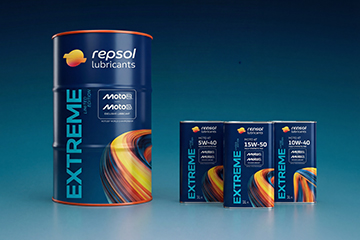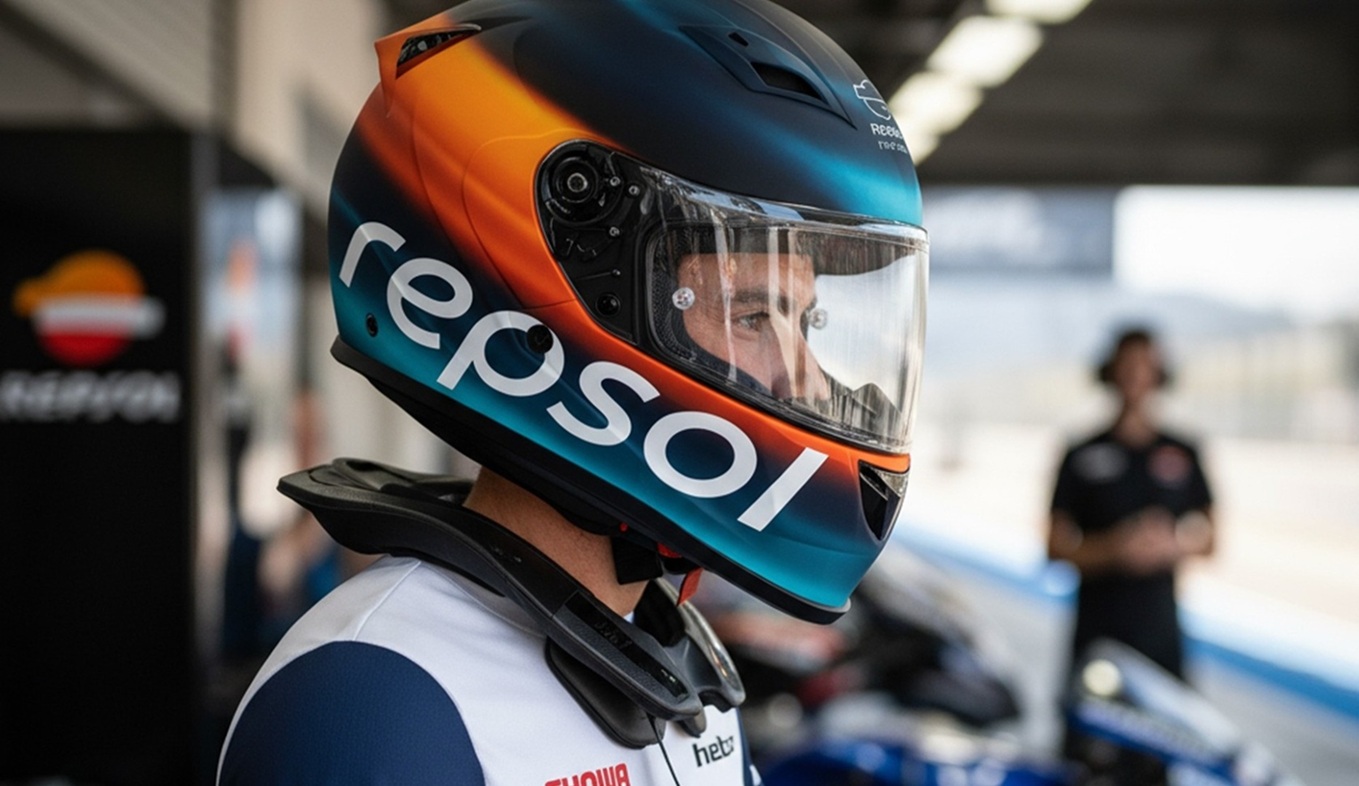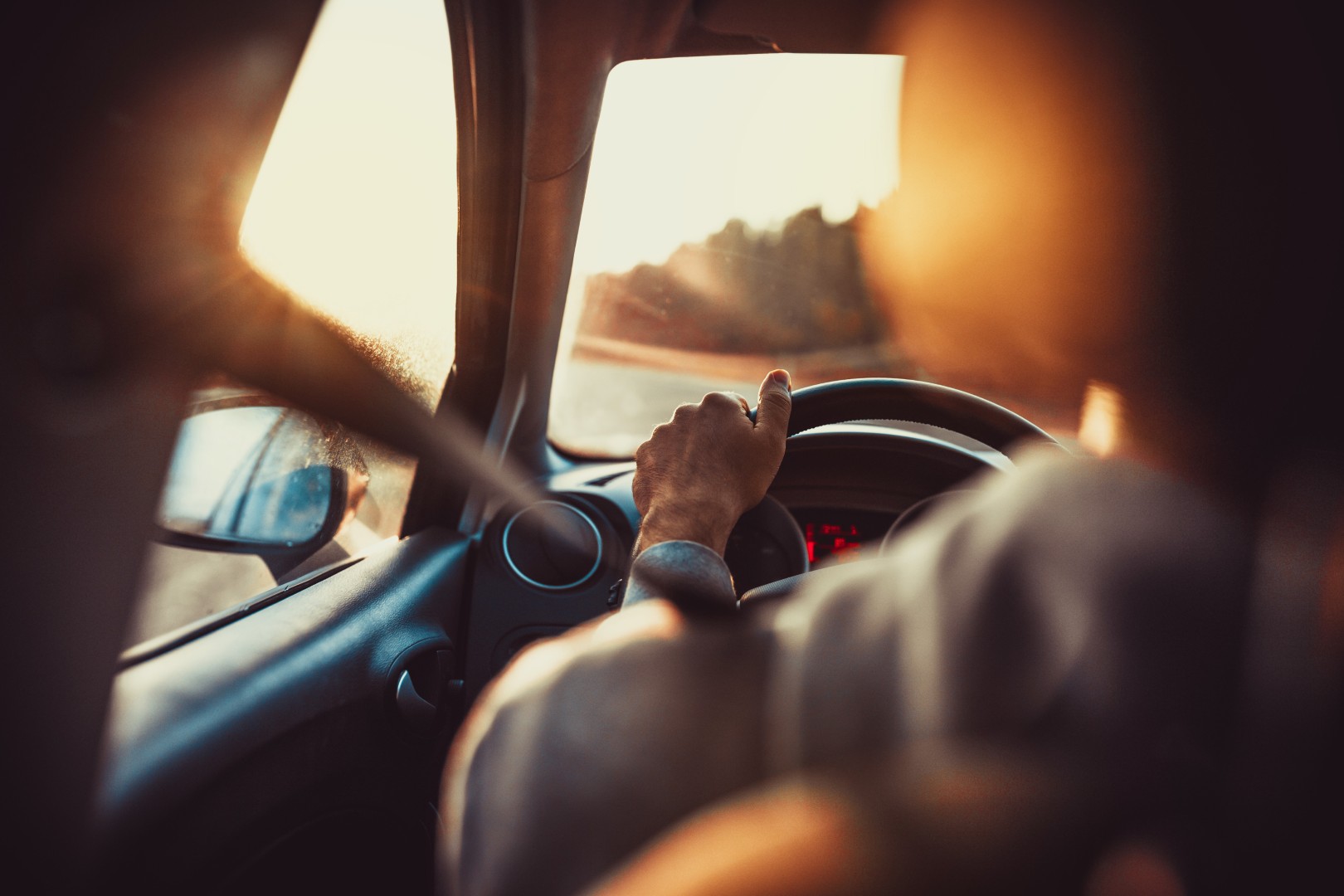Álex Barros: "Everything that works on the track finds its way onto the street"

Álex Barros, a legendary name in world motorcycling, lets us in on his inspiring career in this interview. From his first steps at age 7 to his dedication to the national categories, the Brazilian rider challenged the limitations of a sport with little tradition in his country. His early passion for two wheels, handed down from his family, drove him to overcome obstacles and end up reaching the elite and competing in MotoGP.
Barros not only reveals to us the lessons from his sporting career, but also takes us into the world of technological innovation, explaining how experience on the track translates into advances for everyday motorcycles on the streets. His collaboration with Repsol has allowed him to delve deeper into the development of lubricants and other products, contributing his experience as a rider and his passion for mechanics.
You started competing when you were only 7 years old. Where did this early passion for motorcycles come from?
My family has a history of cycling, both my father and my grandfather. At the age of 3, they gave me a small Italjet motorcycle and I started taking it to tracks, which I loved. We had the opportunity to meet a moped manufacturer with a wide range of models. They were looking for a young man to compete with their light-powered motorcycles. My father suggested I gave it a go and that's how my sports career began in 1978.
What were the main challenges you had to face?
Brazil never had a great motorcycling tradition. Everything came to us through imported magazines that you could only find at one kiosk in all of Sao Paulo. There was nothing on television either. I went up through the categories: from mopeds to 250cc, which is the highest category in Brazil. I won championships in each until I reached the top at 14 or 15 years old.
Is there any one standout moment in your career?
There've been good moments and bad, but its coming back from adversity where you learn the most. You always want to experience the beautiful moments, but there's not only that. To have the highs, you must overcome moments of doubt, physical and psychological challenges... These are things that help you mature, become stronger, and complete you as an athlete and person.
Motorcycling has evolved over the years. What has been your experience with the technological changes in competition? How have they affected your riding?
Many things have changed since my retirement. In my day there was no aerodynamics, and electronics only came in towards the the end, from 2005 to 2007. I experienced the mechanical side of things more than the technology. All this greatly affects riding. In my day, it was the tires that affected us most. There were so many to choose from, with a lot of competing brands.
Each rider started with different tires depending on their bike and their riding style. That often changed the outcome of the race and what made the difference, while nowadays it's the aerodynamics and electronics. Tires are the same for everyone and there aren't that many options. 90% of the grid today basically starts with the same tire set up.
Motorcycling is also an ideal setting for developing and testing new products. From your experience on the track, can you explain how data obtained in competitions is used to improve lubricants?
It's extremely important, because we test many things in the lab: tires, electronics, chassis, engine, aerodynamics... All of this applies to the street bike later on, after making its way through lower categories.
The biggest problem is making these advances accessible to the public, because they can be pricey. When we first tested electronic rear suspension in 1992, it took 5–8 years to hit the streets because it was so expensive. Everything that is used in MotoGP and works finds its way onto street bikes.
If we asked you the same question, but the other way round: how do improvements or innovations in lubricants influence performance on the track?
Lubricants are a good example. The whole idea of oil is to improve friction and temperature, so there's less material wear and tear and it doesn't get as hot, maintaining properties better when the engine is under stress. In 2005, we improved the oil so much we gained 3 horsepower. It's not much for a motorcycle, but it's not supposed to be the oil's main function, so it was a surprise to us.
As for the brakes, it's essential to maintain a constant temperature, because it constantly rises and falls, greatly affecting performance during the race. Chain lubes are essential here, because they are much lighter than street bike chains.
.jpg)
Discover Álex Barros' profile on Instagram and learn more about the Racing range of Repsol Lubricants.
Repsol has always been committed to innovation in the world of motorsport. How do you value the company's work in developing products for motorcycles?
Repsol is one of the few companies that has worked for so long with a factory, Honda, in HRC. It's the largest motorcycle development structure that exists compared to other brands. That's why Repsol is such a premium brand, with in-depth technological knowledge. Very few companies in the world have that level of experience in motorcycles. This is fully reflected in the products that make it to the street, both semi-synthetic and synthetic. You can see the difference.
The transition from being an elite rider to a life off the track is not always easy. What was this process like for you and how did you get involved in other projects related to motorcycling and technology?
I left MotoGP in 2007. Since then, I've made public motorcycling courses for different levels: defensive riding, sport riding, group riding (custom and big trail)... Then I got involved in my own team to help develop young riders and motorcycles in Brazil. In innovation too, which I've always liked a lot, especially tires and brakes, and now with Repsol in lubricants. I've always been a more technical driver. Throughout my career, I've learned a lot about developing all types of products, with testing for factories on tracks or wind tunnels.
What made you want to join Repsol after your racing career was over?
When I was able to start working with the company 4 years ago, I was so proud, because they've always been involved in the world of motorcycling. It's a highly valued and highly respected brand. I've been through HRC, I've had Repsol as a sponsor, and I've developed products with them, so I feel very identified with the project. Knowing the effort that goes into ensuring you have the best product and how that affects your final result is very important.
Bringing all the knowledge I have and being part of the brand to help make it popular in Brazil is a goal that motivates me. We have the highest quality products, but now we have to make ourselves known and show the difference in how our lubricants affect safety, suspension, engine performance, durability, guarantees... It's what we're working on now.
Finally, what advice would you give to young riders looking to follow in your footsteps into competitive motorcycling?
The best advice I can give a young person who wants to start competing, on motorcycles or any other activity, is to be persistent, to be aware that it's not easy, and to accept the process and enjoy it. We often complain about the process, due to pain or results, but we have to be persistent. If you believe in yourself don't let anyone tell you otherwise, not even your parents. Work hard every day, be disciplined. There are days when you don't feel up to it, you're tired, but you have to keep going and be constant and disciplined. If you set those goals, success will come knocking.
Related contents




